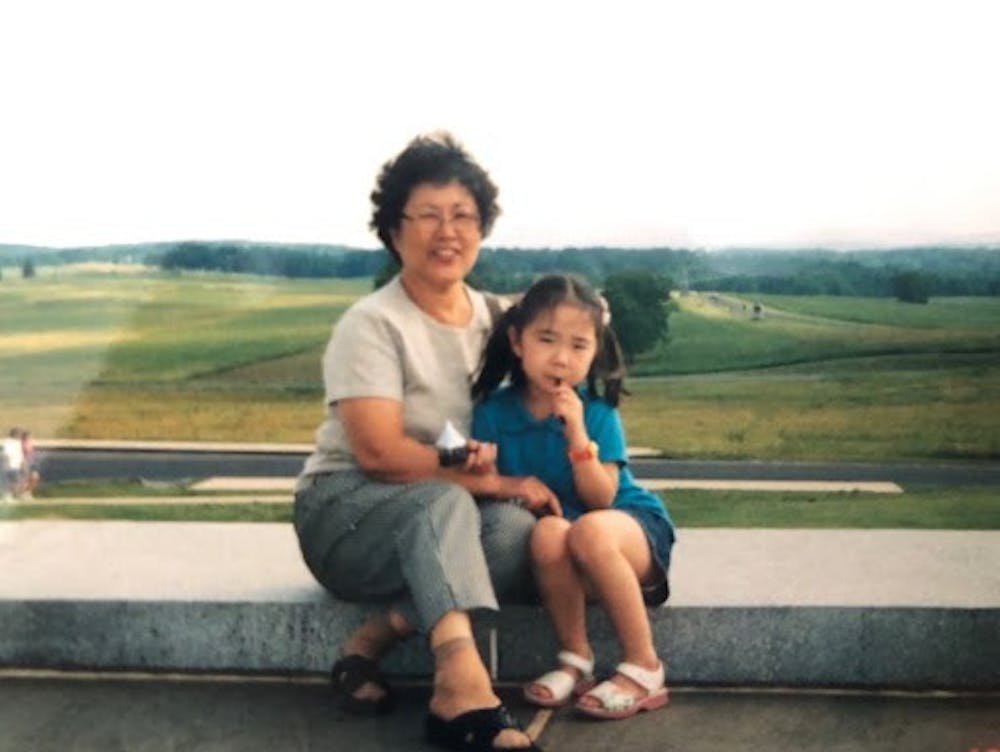
My grandmother grew up in an orphanage — not because she didn’t have a family but because she couldn’t find them. She was six-years-old, maybe seven, when she was separated from them during the Korean War. Raised by the Anglican nuns at the orphanage, she graduated first in her class and left at 18-years-old to pursue a college education during a time when few people, let alone women, had college degrees.
My mother left Seoul, South Korea, the only city she had ever called home, in her late 20s. In her hand she clutched a one-way ticket to this far-off place called America, a country of dreams and immigrants. She left her baby girl with her parents — my grandparents — and promised to bring me to America someday. My dad told me that my mom cried often when they lived in their tiny apartment. She missed me, every single day, until I was back in her arms at four-years-old.
When people think of the Confucian value of filial piety, they think of respect for your parents, elders or ancestors. But for me, the kind of emotion that I feel toward my family, and especially the women in my family, goes further than that. It feels like both longing and love and nostalgia, almost unfathomable in its complexity.
Writing right now I feel it rooted deeply in my body, a deep pang in my heart that echoes down to my gut. How can I comprehend the generations of women who have fought and lived and worked and led me here today? How can I know the way they’ve struggled and persevered?
In a few short weeks, I will walk across the stage at graduation and receive my diploma from Hopkins. My grandparents will watch the livestream from 7,000 miles away in their home in Seoul. In the audience, my mom and dad — our small but mighty unit of three, dispatched from Korea over 20 years ago.
This past January I went to visit Korea for the first time in almost a decade. Getting on the plane, I thought it would feel like some sort of pilgrimage, walking the streets of Seoul again and hugging my grandparents for the first time in years. Growing up in Pennsylvania, I had always longed for the feeling of belonging. In America, my Asian-ness has been, and I know will always be, one of the first things that people notice about me.
And for a moment the hope for belonging in Korea held: We touched down at the airport, and I was awestruck by the fact that I was in a country where most everyone looked like me, and I looked like them. I imagined a parallel life in which I had stayed in Korea. What would I have been like?
But the feeling shattered quickly. My extended family would ask me if they could see my American passport and gawk at it, pointing at my U.S. citizenship as proof that I was just an American. They would say there’s a special word for foreign-born Koreans, and that’s gyopo, and you can spot them from a mile away. The way I talk, dress, act — it’s all so American. I wasn’t perceived as Korean.
During my four years at Hopkins, I’ve learned many things. I’ve learned that as a freshman you get sick of the FFC, but, once you’re a senior, you’ll be begging underclassmen for meal swipes to Sterling Brunch. I’ve learned that I’m not as straight as I once thought I was in high school. (There are so many attractive people in this world!)
And through the wisdom of countless professors, friends, mentors, strangers and thorough internet research, I’ve learned to sink into the comfort of my own skin. Because embracing the duality of Asian American means you don’t have to just be one thing. There’s no such thing as not Korean enough or not American enough. I find belonging through both.
Because the part of me that’s Korean — that’s my history. It’s what ties me to a war that shaped the country that my grandmother came of age into. It’s what connects me to my family oceans away in Seoul. And the part of me that’s American — that’s my present and future. It all began with me, in this country. Thirty years from now, what will my daughter write about me and the risks I’ve taken and the struggles I’ve overcome?
Mom, dad, grandma, grandpa: I know if you’re reading this, you might not have been able to understand everything, if anything I wrote. I know my Korean isn’t good enough to even properly articulate what I’m writing to you — but thank you. 고마워, 사랑해.
When I walk across the stage at graduation this May, they’ll flash my name on the screen: Kelsey Hyeri Ko. A name both Korean and American. And I’ll think of my parents’ faces in the audience and the tears in their eyes they would never profess to shedding. I’ll think of my grandparents’ faces illuminated by the light of a computer screen in the middle of the night in Seoul. I’ll thank those who came before me because they gave me the future.

















